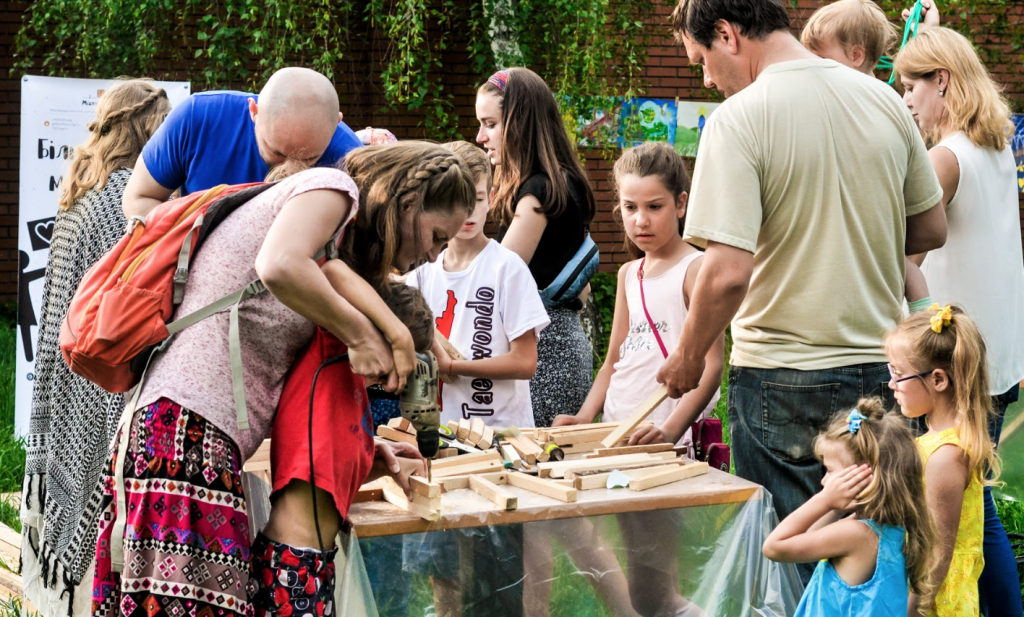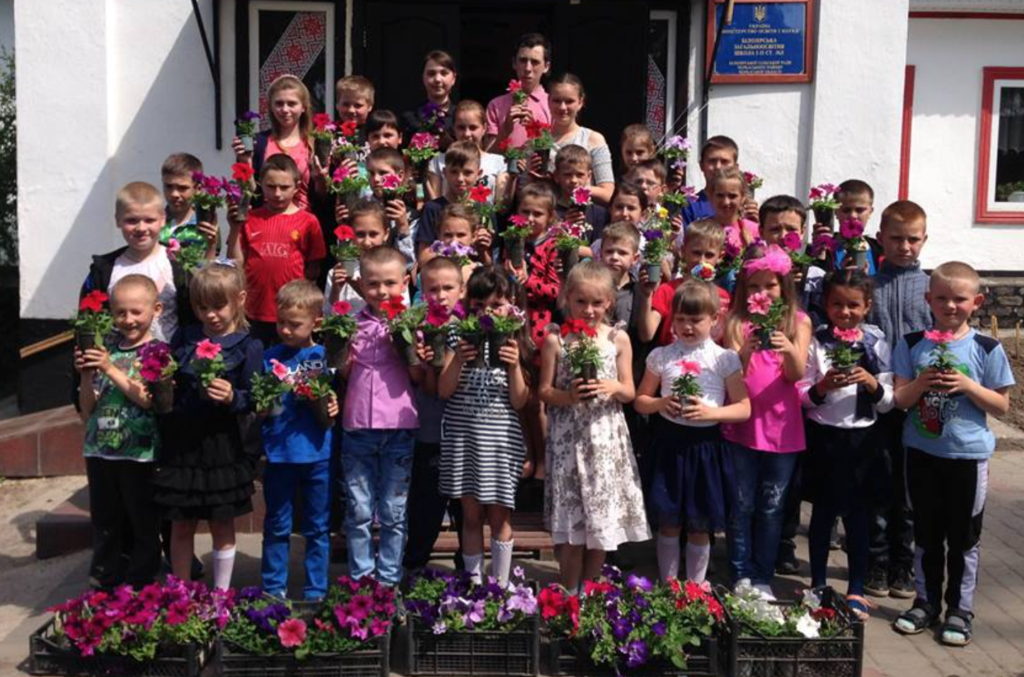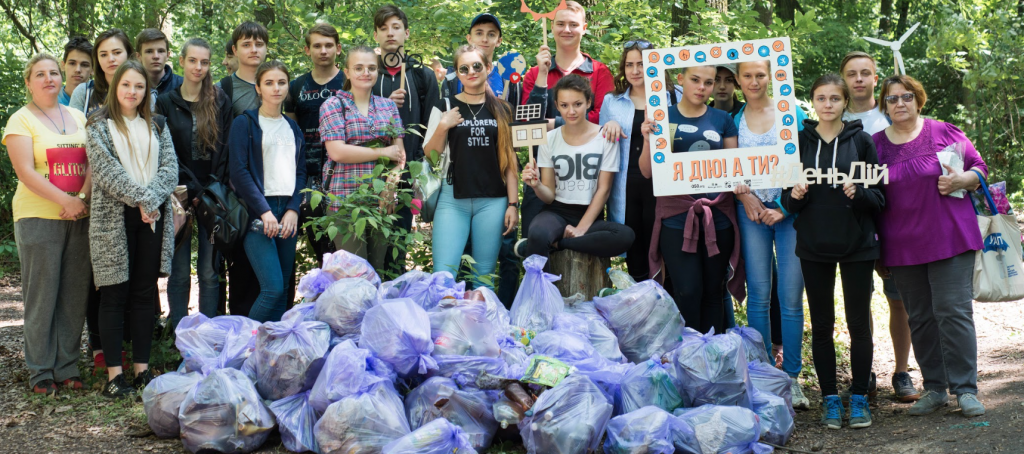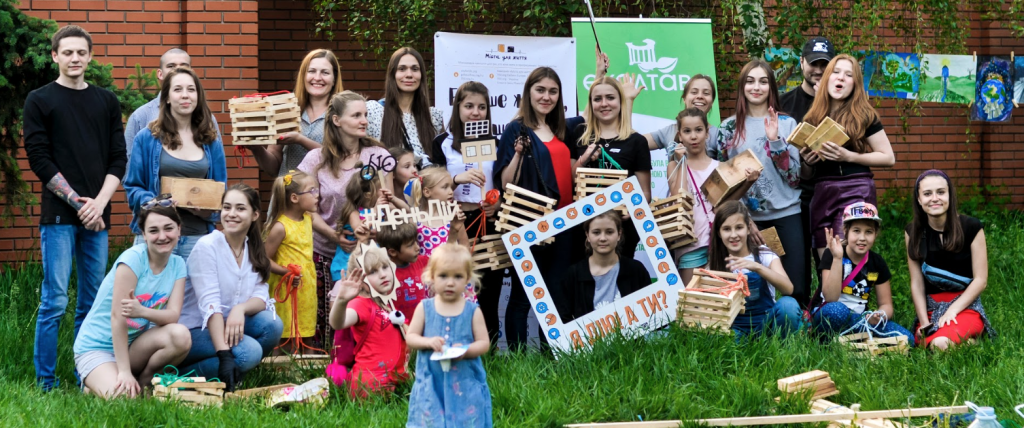From city picnics spotlighting renewable energy, to climate management workshops, to bicycle races – on May 15, 25 events happened during Climate Action Day in Eastern Europe, the Caucasus and Central Asia. This was a powerful regional showing of concern for the climate, and instilled hope that local communities can lead the way with solutions.
The events were organized by local non-profits in alignment with the Action Days framework initiated by the international organization 350.org in cooperation with the Ukrainian Climate Action Network, MoveGreen Initiative (Bishkek), Cities for Life campaign team (St. Petersburg), Research-Intellectual Club “Dialogue of Generations” (Kutaisi) and NGO “Prastor” (Vitebsk).
It’s the second year in a row for Climate Action Day, uniting hundreds of thousands of activists working together to address one of the biggest challenges of mankind, climate change. Activities were in 14 cities and three villages of Ukraine*, as well as in 4 other cities in the region: Georgia, Kirgizstan, Russian Federation and Belarus. Overall, 21 organizations and initiatives have joined the movement.
“Action Days is an attempt to unite the efforts of local communities in order to show that together people can influence local climate policy decisions, change their habits in order to prevent negative global consequences of climate change, and move from words to actions”
-Svitlana Romanko, a regional coordinator/campaigner of 350.org in Eastern Europe, Caucasus and Central Asia (EECCA).
Locally-grounded climate action in solidarity
It was up to local communities to choose the event formats, and therefore every action was unique. All events were devoted to sustainable development and people’s impact on the climate change process.

Communities held cycle races, film screenings, climate debates, thematic workshops, eco-lectures, community work days, eco-parties, planted biofuel plants, flowers and trees, made coffee on a solar generator and measured carbon footprints of event participants. Before and after Days of Actions, public working group discussions on the city Plans for Climate and Energy and city programs on ecological (and climate) well-being!

“For example, in Lviv, Ukraine, our team worked at the Rynok Square. Everybody could come up and measure their “carbon footprint” using a questionnaire”, said Diana Popfalushi, coordinator of the NGO “For Eco Development”. The survey results are measured in hectares of land. According to average estimates, for the Earth to be able to restore its resources, one person requires per year 1.8 hectares of land (for growing food, life, activity emissions). If your result exceeds this figure, you need to change your habits.”

In Georgia, in the city of Kutaisi, activists held a discussion about the climate change challenges there and presented an online application with recommendations for recycling. In St. Petersburg, Russia, an environmental party and film screening were held; in Bishkek (Kirgizstan), a meeting was arranged in the Botanical garden to discuss the upcoming forum of green initiatives to be held in the city; and in Vitebsk (Belarus) people planned an ecological festival on climate change is being planned with the Botanical garden.
“Few of our fellow citizens think about how our needs and consumerism affect the ecosystem of the planet, what world we are going to leave behind – prosperous or drowning in waste. Therefore, being a volunteer during Action Days and helping people to grasp the importance of environmental thinking has become a matter of principle for me, as well as an opportunity to contribute to the promotion of a low-waste lifestyle,” says Julia Vinyarska, Volunteer of Action Days in Lviv.

*The events in Ukraine were initiated: in Kyiv by the Center for Innovation and Sustainable International Development “The Wind of Change”, in Lviv, by NGO “For Eco Development”, in Ivano-Frankivsk, by the Institute of Law of Vasyl Stefanyk Precarpathian National University, Ukrainian Youth Climate Association and Ukrainian Greek Catholic Church (UGCC) Environmental Bureau, in Poltava, by “Ecoltava”, in Dnipro, by NGO “Ukraine needs you”, in Lutsk, by LUTSK NIGHT CINEMA, in Rivne, by Garden of Histories Non-government Initiative, in Vinnytsa, by Pangea Ultima Development Center, in Berdyansk, by NGO “Ukraine needs you”, in Brody, by UGCC Environmental Bureau, in Kryvyi Rih, by NGO “Eremurus”, in Zaporizhzhya, by NGO “Dzyga”, in Khmelnytsky, by Khmelnytsky Youth Development Club/ASTAR, in Muzykivka, by local United Territorial Community (Kherson region), in Rozivka, by NGO “Eremurus”, in the village of Bilozirya, by the basic educational institution “Bilozirya school of general education (primary, secondary and high school)” and Bilozirya school of general education (primary and secondary school), branch of the basic educational institution “Bilozirya school of general education (primary, secondary and high school)”.